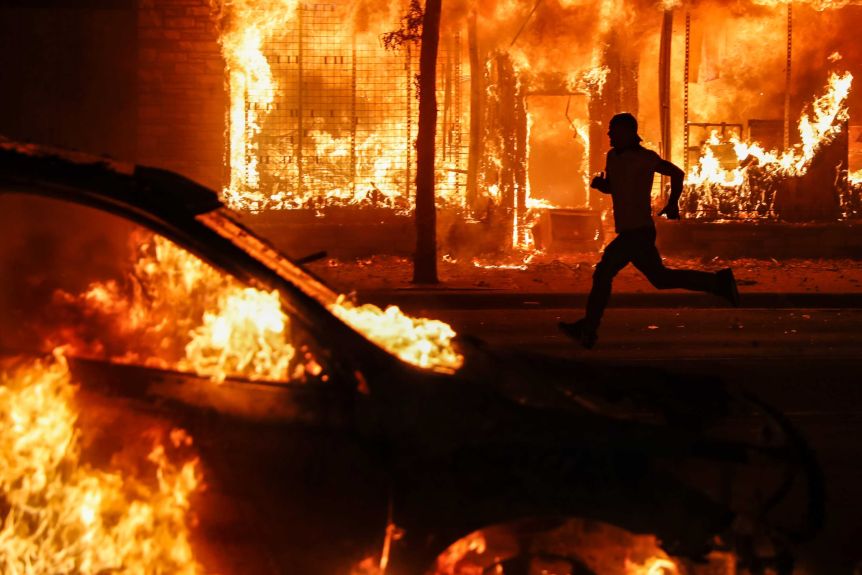Black Lives Matter: Unlearning History

Racism ingrained in US society
Racism is ingrained within the words we use. The word “looting,” which has been used to detract from the demands of protesters and frame them as harmful and disruptive, is itself rooted in colonial origins meant to denote an intrinsic violent-naturedness of indigenous people. In the context of the Black Lives Matter movement, emphasis on looting and Trump’s tweeted statement of “when the looting starts, the shooting starts” are grounded in a denial of the oppression that is the root of the issue, as well as directly derived from racist, anti-Black histories. It is our collective responsibility to not only push back against such arguments, but to continuously interrogate the language we use when having these conversations.
This process is inevitably an uphill battle because our education systems have systematically minimized and erased the effects of colonialism and institutional racism. The Tulsa Race Massacre or the delayed emancipation of enslaved people culminating on Juneteenth are just two examples of pivotal historical moments that aren’t covered in mainstream American curricula. This conversation has sparked action in the UK where calls to decolonize the curriculum have picked up momentum. The move to topple statues in the US andUK alike represents more than a symbolic repudiation. Removing these statues from positions of public reverence actively reshapes historical memory. Pushing back against racist narratives must come from the bottom, with people demanding change from institutions. To expect these transformations to come from the top, when rich and powerful educational institutions have a vested interest in maintaining present conditions, is misguided.
Role of social movements
The magnitude of this issue reveals the extent to which social movements must operate outside the electoral arena. Without a doubt, elected officials influence a variety of relevant policy outcomes, especially funding. However, responding to this series of state-sanctioned murders with calls to go vote is simply deaf to the awakening that is happening on a societal level. Racism is weaponized and perpetuated through political institutions, but individuals, the citizens, make this possible on a day-to-day basis. Echoing the feminist slogan of “the personal is political,” an anti-racist society requires individuals to make actively anti-racist decisions in their personal and professional lives. Books on anti-racism are now topping the bestseller list. Netflix has created a section of documentaries and shows related to Black Lives Matter. On social media, educational resources related to racism and anti-Blackness have never been easier to find. The onus is now on all of us as individuals to pick up where our education systems failed us, to fill the gaps in our knowledge that were deliberately left blank.
The call to unlearn history is a call to action. Decolonizing our mindsets, our pasts, and sometimes our foundational beliefs will inevitably disrupt our present and our future. At this time, while electoral politics and the actions of celebrities and billionaires remain relevant, we all have a responsibility to turn inward. Systems take millions of participating individuals to function, whether those people actively consent or not. Our unintentional and subconscious decisions have likely contributed to the anti-Black, classist society we live in today. To put the responsibility of change on any savior, whether a politician or a celebrity, is insufficient and inhibiting. By examining the anti-Blackness in each of our own communities, and acknowledging our individual roles in perpetuating it, we can move forward with the process of social transformation.
The history of the subaltern teaches us that real, transformative change does not come from the top. Slogans of “diversity and inclusion” and one-time donations aside, the systematic state-sanctioned murder of Black people in the US and around the world cannot be dealt with using superficial politics. It should not have taken a horrifically graphic video to inspire the protests and outrage that have swept the globe. But now that we are here, it is on each and every one of us to keep the momentum going – and to unlearn our individual histories in the process. Defunding the police is an important policy objective. Abolition, however, is a personal and political project. How can we dare to dream of a world without police and prisons? The answer lies in the history that people don’t want us to hear. The past is teeming with possibility, and now is our time to search for answers.